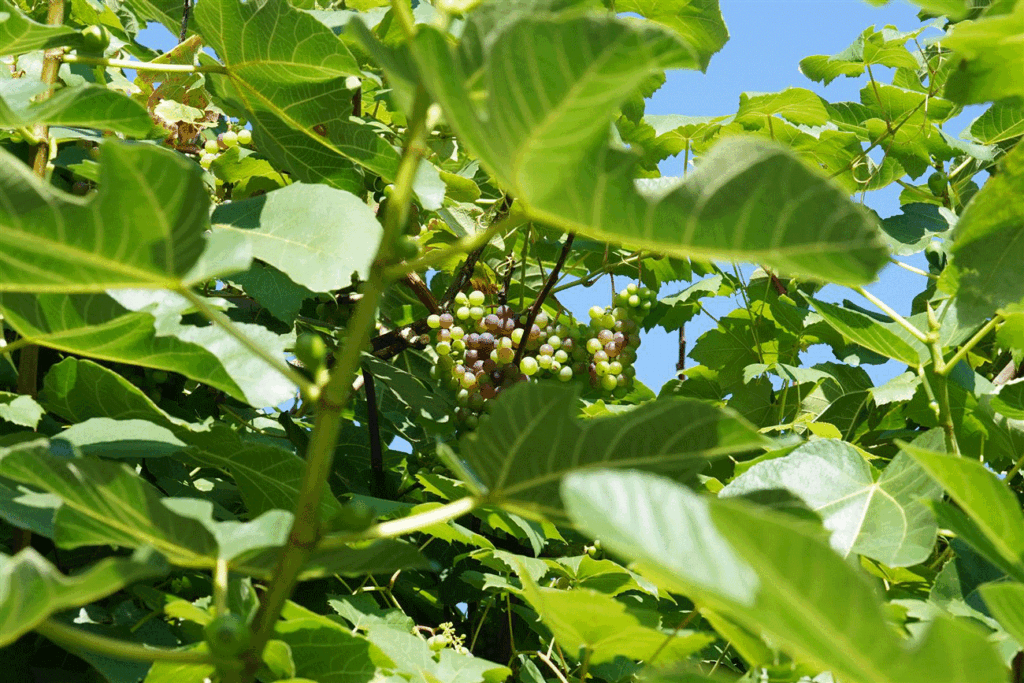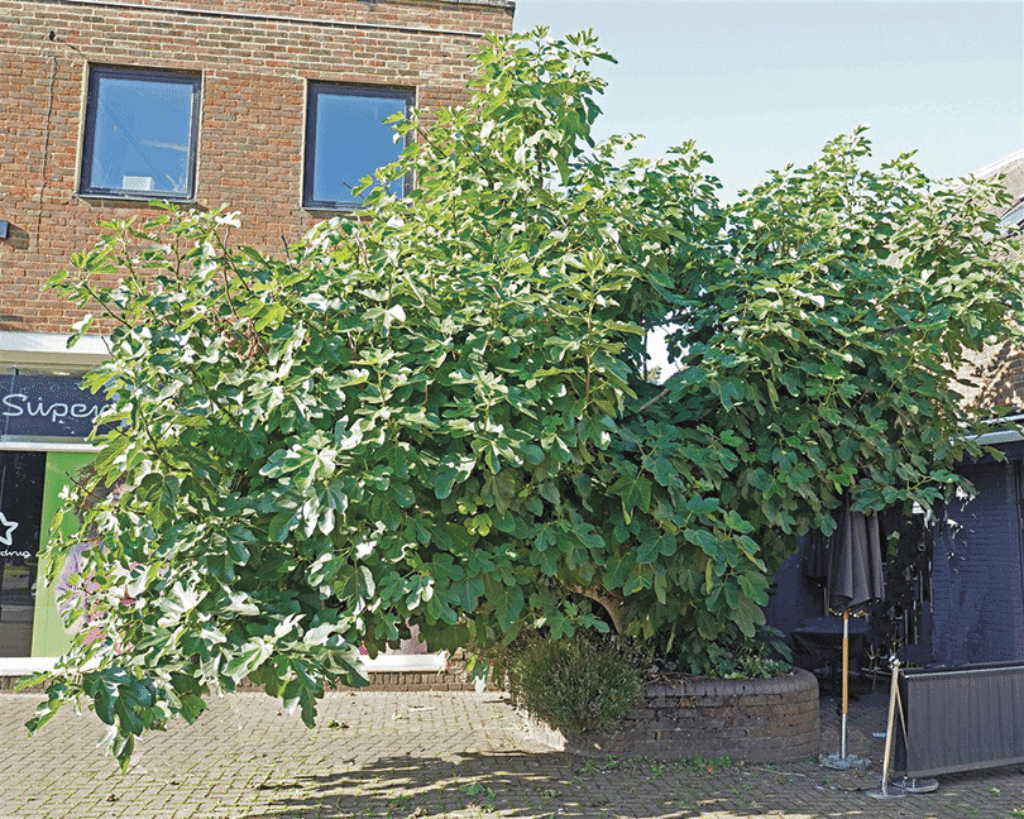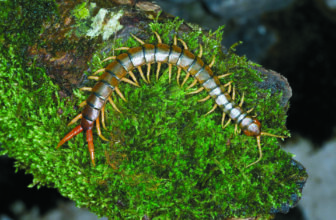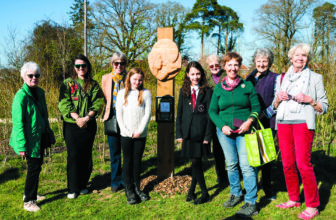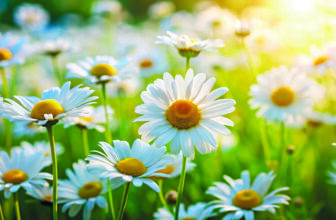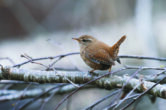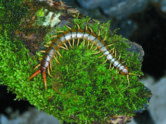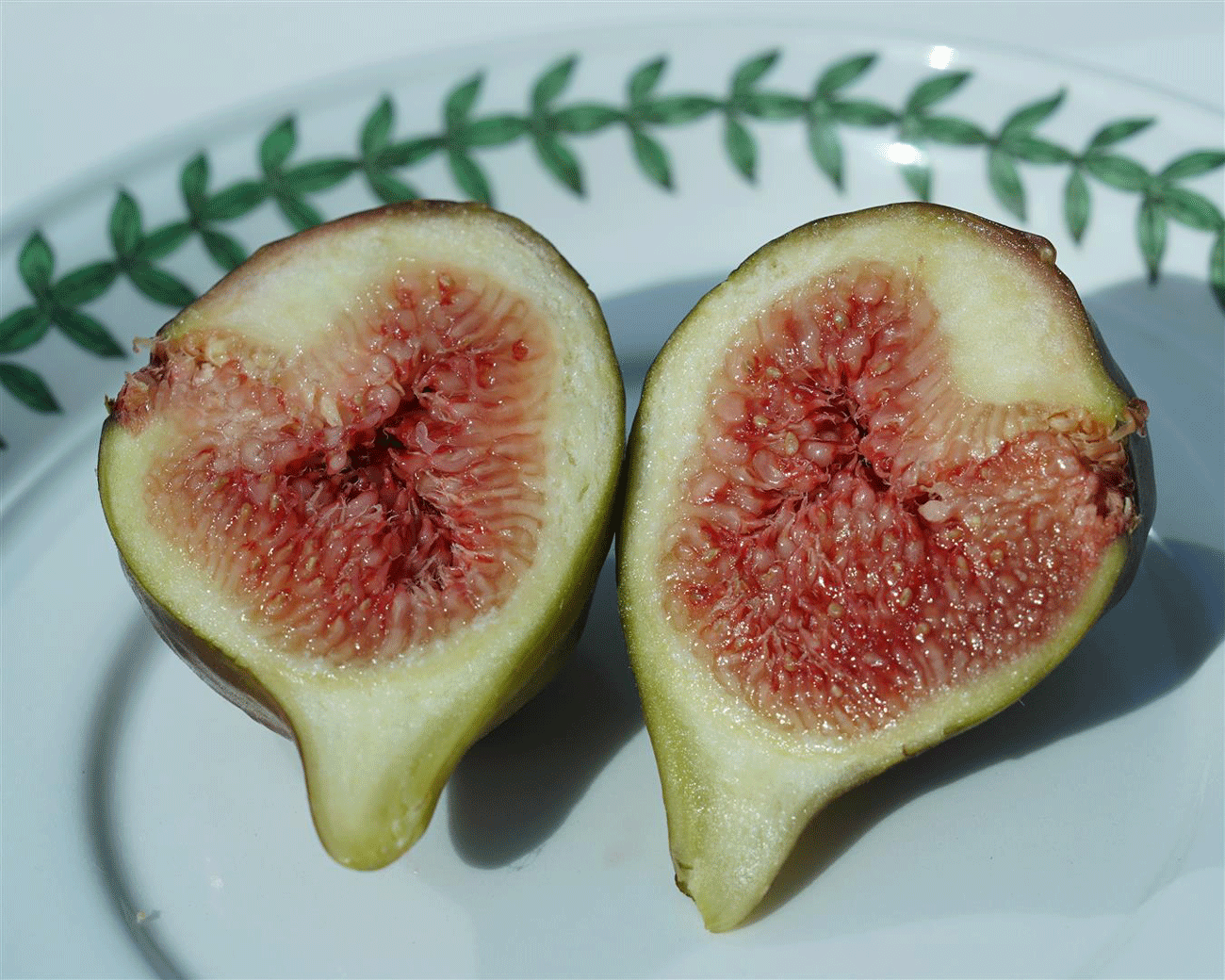
by Miki Marks
The fig, Ficus carica, has flourished this year. Perhaps this is due to the longer growing season we are experiencing. I have had a sulking twiglet of a fig at the end of the garden for some years – and it always looked reluctant and pathetic. Suddenly this year it has trebled in height and has not only produced an abundance of leaves, but actually two fruits – which we shared, and they were delicious. I have high hopes that this flourishing will continue. The fig outside the Rania restaurant on the High Street in Cranleigh has also benefitted from conditions this summer and it is enormous. I understand that it was planted by the previous Greek owner, perhaps to remind him of home. He also planted a grapevine to ramble through the fig.
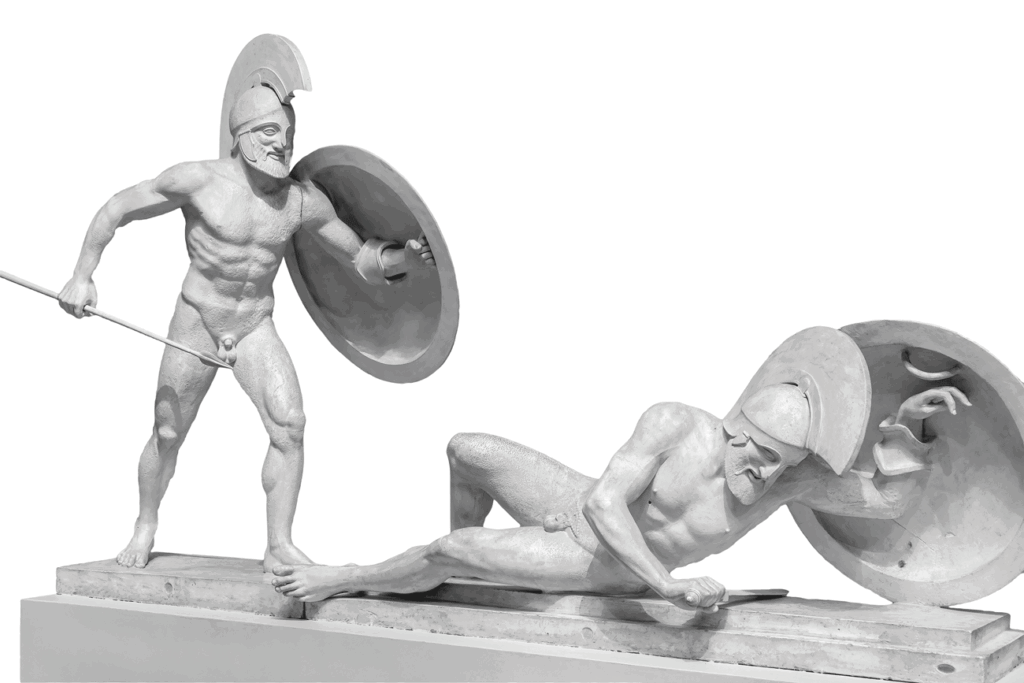
Grapes and figs are historical and mythical symbols in the Middle East and Mediterranean – and made up a large and important part of the diet. Spartan men apparently ate only figs which they believed were a complete food and a source of special strength. There is no agreement as to when the fig was introduced into England – some say the Romans, but it seems more likely that it came from Italy in the 16th century. The trees can live to a great age and thrive in well drained soil. I am going to try a different cultivar in a large pot.
There are many varieties of fig trees – the cultivated ones having leaves far more indented than the wild figs. Male and female flowers are produced on separate trees and are unique in that they are borne inside a fleshy receptacle; when we eat a fig we are really eating not a fruit but internal flowers. They are pollinated by wasps which crawl through a tiny hole at the tip. Flowers form in May from hard little green knobs and if fertilised, ripen in October.
Henry David Thoreau (1817-1862) was an American naturalist, essayist, poet and philosopher who was interested in the relationship between humans and the natural world. He is best known for his book Walden which is a reflection on simple living in natural surroundings.
He said “It is vain to dream of a wilderness distant from ourselves. There is no such. It is the bog of our brains and bowels, the primitive vigour of Nature in us, that inspires that dream.” I take this to mean that we have an inherent, biological response to Nature. Research by psychologists reveal that bacteria in the soil activates the brain to produce serotonin – a neurotransmitter associated with feelings happiness, calm and focus. Trees also produce a cocktail of botanical compounds which when inhaled and absorbed via our pores – send signals to our
Hypothalamus which calms the stress caused by our ‘fight or flight’ response. Our response to nature is ‘built-in’ and we ignore it at our peril.

To connect with Nature we need to use all our senses. I was thinking how many satisfactions rain brings to the five senses. It makes a huge variety of sounds as it falls: we have many words for rain music such as pitter-patter, hissing or drumming, depending on the intensity of the downpour. There is the sight of it: dripping off leaves, forming puddles, darkening the earth, running down windows making different patterns. The feeling of rain on one’s skin after a long, hot dry spell is soothing and delicious. Top of my list is that deeply satisfying smell of wet earth known as petrichor – after a spell of rain. There is one sense I had not explored before, and that is the taste of rain. I left a glass out the other night, knowing it was going to rain. Next morning there was a good inch in the glass, which I drank. I don’t know what I was expecting but the taste was slightly metallic, and not very pleasant. I have no idea why – but I might repeat the experiment shortly and see if I can research this further. I will let you know if I discover anything interesting.
Autumn work now begins at Beryl Harvey Conservation site.

